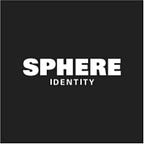The right to be me and the rise of the self-sovereign identity
Identity is more than a document that proves who you are. It paves your way in the world. It provides a foundation for economic, social and political opportunity.
At present, centralised institutions like governments or banks act as gatekeepers to identity. In a changing and agile world, who controls your identity and what they do with it, is becoming an increasingly complex issue. We travel more and have international digital lives.
Enter the rise of self-sovereign identity. Self-sovereign identity is decentralised and puts you in control of the information that makes up your identity. You have the power to choose who you share that information with, how much you share and how that information is stored.
Having this control is more significant in some contexts than others. Here, we’re looking at self-sovereign identity in a development context. What is the impact of having this control in places where trust in government may be low, or inequality high?
The state of identity
As of 2016, the World Bank estimates that there are 1.5 billion people in the world unable to prove their identity. Most of these people live in low or lower-middle income households in Asia and Africa.
The countries they live in lack adequate birth registries, or cannot provide identification for every person living within their borders.
Without this proof, people are excluded from economic participation. They struggle to access education, financial services, healthcare, social welfare and political representation.
Governments without an identification system are handicapped in the provision of useful social services. They cannot estimate the number of eligible recipients or target them efficiently. Without clear registries, the risk of exploitation and corruption are high.
And even those with identity programs face issues. Systems are often fragmented across several agencies, limited within a region, or difficult to access. Their centralised nature adds high risk of data breaches.
This presents huge challenges in our increasingly interconnected and digital world.
No state, no security: the importance of identity for displaced people
Without identity documents, people forced to flee their homes due to conflict, persecution or natural disaster, can’t access the legal channels designed to assist them.
This makes people more vulnerable to trafficking, as they cannot prove their age, nationality or refugee status. With 70% of Syrian refugees in Lebanon, Jordan & Iraq lacking basic identity documents, they have limited access to essential public services. Only half of the 500,000 school-age Syrian children in Lebanon are enrolled in school.
Another risk facing children born in displacement is starting life stateless. Difficulties in accessing birth registries, coupled with laws around inheriting nationalities or citizenship restrictions in the country of birth can leave parents unable to register their child.
Yet existing identification systems that are poorly implemented may pose an even greater risk.
People who qualify as refugees, stateless persons, or even citizens, face obstacles to obtain their identity. Millions of Rohingya, who fled to Bangladesh following persecution in Myanmar, now have to prove past Burmese residency to return home to a country that does not recognise them as citizens.
Even in developed nations, like EU member states, influxes of people can put a strain on established systems. The Mediterranean refugee crisis peaked in 2015, but even after two years people are still waiting for asylum interviews.
To empower displaced people, we need to build robust identification and registration systems. In turn, they make it easier for governments and aid organisations to respond.
Centralised does not mean secure
With centralised systems holding a monopoly on proof of identity, individuals have no choice but to navigate complex bureaucratic processes with little guidance or knowledge of where their personal data is going.
India’s Aadhar system, which covers 99% of adults, recently faced international scrutiny as personal data could be purchased from hackers for as little as $8.
Yet the struggle isn’t over upon gaining proof of identity. Identities can end at borders, leaving migrant workers vulnerable to manipulation or misinformation. They can be difficult to replace, or to verify when paper trails are lost.
In patriarchal cultures, a woman may have an identity, but it is often linked to that of her husband or guardian. With her access to economic opportunity, travel, education and social liberties controlled by a man, her freedom is limited.
In Saudi Arabia, women need the permission of their guardian to undertake many daily tasks. Each human has the right to their own identity
There are solutions
To address these identity and access inequalities, the UN Sustainable Development Goal 16.9 was set “to provide legal identity for all, including birth registration” by 2030.
There are several global organisations working to meet this goal.
The World Bank’s ID4D program works with governments to identify the solutions they need, then helps to implement them. So far they’ve established systems in Thailand, Peru and Pakistan to name a few.
The ID2020 Alliance is a public-private partnership that brings existing solutions into a more efficient framework. They are increasing birth registrations in countries like Malawi & Tanzania by allowing parents to register their children when they receive vaccinations.
The World Food Program’s Building Blocks initiative uses the Blockchain to simplify aid distribution. Working with biometric data, the system has cut down the administration of providing food for thousands of Syrian refugees in Jordan.
With NGOs stepping up to provide the infrastructure, the burden on local governments is eased. But the funding for these organisations isn’t always secure.
We’ve built a decentralised identification platform that allows you to keep your identity secure, portable and private.
In addressing the identity problem, people will be empowered to control their own identities and partake in society on their own terms. New technology is making self-sovereign identity possible.
Sign up for updates from Sphere Identity by clicking here.
